Serbia fails to get EU accession talks date
The European Commission (EC) did not recommend that Serbia be given a date for the beginning of the EU accession talks in a report that was presented today.
Wednesday, 10.10.2012.
12:39

BRUSSELS The European Commission (EC) did not recommend that Serbia be given a date for the beginning of the EU accession talks in a report that was presented today. Instead, the EC has recommended Serbia to improve its relations with Kosovo. Serbia fails to get EU accession talks date European Parliament (EP) Foreign Policy Committee meeting was held on Wednesday in Brussels and EU Enlargement Commissioner Stefan Fule presented the European Commission (EC) annual report on progress of all countries that want to join the Union, including Serbia. The EC said in the report that Serbia had made progress on the EU pathway but it also pointed out to weaknesses as far as the rule of law is concerned and requested Serbia’s “constructive participation” in normalization of relations with Kosovo. Serbia did not get a date for the beginning of the EU accession negotiations due to the postponement of the Belgrade-Pristina dialogue and a lack of implementation of agreements that have already been reached with Pristina. “After the elections and forming of the new government, Serbia should continue to constructively participate in the next phase of the dialogue in order to make further progress in the visible and sustainable improvement of relations with Kosovo,” it is added in the report. “The new Serbian leadership has expressed its readiness to implement all the agreements in the dialogue with Pristina and start solving wider political issues,” reads the report. “Keeping this promise is crucial for Serbia’s progress in a new phase of the EU integration,” the EC said in the report. The Commission noted that “regional cooperation and good neighborly relations form an important part of the process”. The EC noted in the document that Serbia continued to fulfill political criteria and conditions from the Stabilization and Association Agreement (SAA) and that the elections had shown that democracy was consolidated in Serbia. The Commission added that Serbia fully cooperated with the Hague Tribunal, although it still needed to reveal the network of Hague tribunal fugitive’s helpers. The EC determined that Serbia had made very little progress in the past year as far as the rule of law is concerned and noted that it was necessary to adopt a new reform strategy. “In order to gain citizens’ trust, the authorities need to consider additional measures in order to strengthen independence, impartiality, responsibility, expertise and efficiency of the judiciary,” reads the report. The Commission also determined that little was done to establish a democratic control of the security system. According to the report, corruption and organized crime still represent a great problem and the EC is still waiting for the Action Plan and the Anti-Corruption Strategy. The EC stated that laws needed to be significantly improved and that it expected high-profile corruption and organized crime cases to be successfully prosecuted. The EC concluded that the public administration reform was too slow and that the lack of political will was a part of the problem. Even though the EC noted that Serbia generally respected human rights, it stated in the report that it was necessary to make additional effort to protect minority rights. The report especially focuses on the ban of the gay Pride Parade despite constitutionally guaranteed rights to freedom of assembly. The EC requests from the Serbian authorities to start a social dialogue with representatives of the LGBT community so the minority could exercise all the rights guaranteed by the law. Progress is visible when it comes to regional cooperation with neighbors, says the report. The Commission especially welcomed joint efforts of Serbia, Croatia and Bosnia-Herzegovina in solving the refugee issue. A part of the report focuses on the economy – poor economic growth, high unemployment and increase in the budget deficit. The EC is especially worried about a violation of independence of the National Bank of Serbia (NBS). The EC concluded that structural reforms were necessary in Serbia’s economy but that very little was done in that area in the past year. Stefan Fule (Tanjug) “Sustainable progress” necessary in relations with Kosovo Fule said that the EC encouraged Serbia to continue to implement reforms and to be constructively involved in regional cooperation and establishment of good neighborly relations. Fule added that a visible and sustainable progress in the Belgrade-Pristina relations was necessary so Serbia and Kosovo, which is treated separately in the EC report, could continue their EU pathway without halting each other. “A visible and sustainable progress in the Belgrade-Pristina relations is necessary in order for both Serbia and Kosovo to continue toward the EU and avoid blocking each other in those efforts,” he pointed out. According to him, the process should gradually result in normalization of relations. The EC stressed in the feasibility study that the EU could sign the SAA with Pristina, Fule said and added that the EC had called on Kosovo implement all the agreements reached in the dialogue with Belgrade. Fule noted that the Commission's overall approach to Serbia was based on three main elements: raising the Belgrade-Pristina dialogue to the highest level, tying the decision on the date when Serbia will start accession talks to the progress in the dialogue and defining the term "normalization of relations." He said that EU High Representative for Foreign Affairs and Security Policy Catherine Ashton, who proposed that the dialogue be raised to a higher level, had constantly been in touch with both sides. “The dialogue should be embedded even deeper into the EU enlargement process, and for Serbia, progress in the dialogue will be of key importance for getting a starting date for accession talks with the EU,” he explained. “Other issues are also important for the international community, such as parallel structures in north Kosovo, and sense of Kosovo Serbs that they have a future,” Fule underlined, adding that it was important for Belgrade and Pristina to continue to make progress in the normalization of relations once Serbia started the accession talks. “The EC also tried to explain the meaning of normalization of relations between Belgrade and Pristina for the first time,” the European commissioner said, adding that the EU was not urging Serbia to recognize Kosovo as this had not been done by five EU members as well. He said that Serbia had made progress in terms of the rule of law, property rights, and implementation of certain agreements with Pristina, including the issue of regional representation and the Protocol on integrated management of administrative crossings. “On the other hand, Serbia has taken certain steps which have given us a cause for concern, for example the violation of independence of the National Bank of Serbia (NBS),” he said, adding that Serbia was clearly told that all laws had to be in line with the European standards. The EU enlargement commissioner will arrive in Belgrade later on Wednesday in order to clarify details of the report. Head of the EU Delegation to Serbia Vincent Degert handed the report to the Serbian authorities at 13:00 CET. The Serbian government session was held immediately after PM Ivica Dacic receives the report, at 14:00. B92 Beta Tanjug
Serbia fails to get EU accession talks date
European Parliament (EP) Foreign Policy Committee meeting was held on Wednesday in Brussels and EU Enlargement Commissioner Stefan Fule presented the European Commission (EC) annual report on progress of all countries that want to join the Union, including Serbia.The EC said in the report that Serbia had made progress on the EU pathway but it also pointed out to weaknesses as far as the rule of law is concerned and requested Serbia’s “constructive participation” in normalization of relations with Kosovo.
Serbia did not get a date for the beginning of the EU accession negotiations due to the postponement of the Belgrade-Priština dialogue and a lack of implementation of agreements that have already been reached with Priština.
“After the elections and forming of the new government, Serbia should continue to constructively participate in the next phase of the dialogue in order to make further progress in the visible and sustainable improvement of relations with Kosovo,” it is added in the report.
“The new Serbian leadership has expressed its readiness to implement all the agreements in the dialogue with Priština and start solving wider political issues,” reads the report.
“Keeping this promise is crucial for Serbia’s progress in a new phase of the EU integration,” the EC said in the report.
The Commission noted that “regional cooperation and good neighborly relations form an important part of the process”.
The EC noted in the document that Serbia continued to fulfill political criteria and conditions from the Stabilization and Association Agreement (SAA) and that the elections had shown that democracy was consolidated in Serbia. The Commission added that Serbia fully cooperated with the Hague Tribunal, although it still needed to reveal the network of Hague tribunal fugitive’s helpers.
The EC determined that Serbia had made very little progress in the past year as far as the rule of law is concerned and noted that it was necessary to adopt a new reform strategy.
“In order to gain citizens’ trust, the authorities need to consider additional measures in order to strengthen independence, impartiality, responsibility, expertise and efficiency of the judiciary,” reads the report.
The Commission also determined that little was done to establish a democratic control of the security system.
According to the report, corruption and organized crime still represent a great problem and the EC is still waiting for the Action Plan and the Anti-Corruption Strategy. The EC stated that laws needed to be significantly improved and that it expected high-profile corruption and organized crime cases to be successfully prosecuted.
The EC concluded that the public administration reform was too slow and that the lack of political will was a part of the problem.
Even though the EC noted that Serbia generally respected human rights, it stated in the report that it was necessary to make additional effort to protect minority rights. The report especially focuses on the ban of the gay Pride Parade despite constitutionally guaranteed rights to freedom of assembly.
The EC requests from the Serbian authorities to start a social dialogue with representatives of the LGBT community so the minority could exercise all the rights guaranteed by the law.
Progress is visible when it comes to regional cooperation with neighbors, says the report. The Commission especially welcomed joint efforts of Serbia, Croatia and Bosnia-Herzegovina in solving the refugee issue.
A part of the report focuses on the economy – poor economic growth, high unemployment and increase in the budget deficit. The EC is especially worried about a violation of independence of the National Bank of Serbia (NBS).
The EC concluded that structural reforms were necessary in Serbia’s economy but that very little was done in that area in the past year.
“Sustainable progress” necessary in relations with Kosovo
Fule said that the EC encouraged Serbia to continue to implement reforms and to be constructively involved in regional cooperation and establishment of good neighborly relations.Fule added that a visible and sustainable progress in the Belgrade-Priština relations was necessary so Serbia and Kosovo, which is treated separately in the EC report, could continue their EU pathway without halting each other.
“A visible and sustainable progress in the Belgrade-Priština relations is necessary in order for both Serbia and Kosovo to continue toward the EU and avoid blocking each other in those efforts,” he pointed out.
According to him, the process should gradually result in normalization of relations.
The EC stressed in the feasibility study that the EU could sign the SAA with Priština, Fule said and added that the EC had called on Kosovo implement all the agreements reached in the dialogue with Belgrade.
Fule noted that the Commission's overall approach to Serbia was based on three main elements: raising the Belgrade-Priština dialogue to the highest level, tying the decision on the date when Serbia will start accession talks to the progress in the dialogue and defining the term "normalization of relations."
He said that EU High Representative for Foreign Affairs and Security Policy Catherine Ashton, who proposed that the dialogue be raised to a higher level, had constantly been in touch with both sides.
“The dialogue should be embedded even deeper into the EU enlargement process, and for Serbia, progress in the dialogue will be of key importance for getting a starting date for accession talks with the EU,” he explained.
“Other issues are also important for the international community, such as parallel structures in north Kosovo, and sense of Kosovo Serbs that they have a future,” Fule underlined, adding that it was important for Belgrade and Priština to continue to make progress in the normalization of relations once Serbia started the accession talks.
“The EC also tried to explain the meaning of normalization of relations between Belgrade and Priština for the first time,” the European commissioner said, adding that the EU was not urging Serbia to recognize Kosovo as this had not been done by five EU members as well.
He said that Serbia had made progress in terms of the rule of law, property rights, and implementation of certain agreements with Pristina, including the issue of regional representation and the Protocol on integrated management of administrative crossings.
“On the other hand, Serbia has taken certain steps which have given us a cause for concern, for example the violation of independence of the National Bank of Serbia (NBS),” he said, adding that Serbia was clearly told that all laws had to be in line with the European standards.
The EU enlargement commissioner will arrive in Belgrade later on Wednesday in order to clarify details of the report. Head of the EU Delegation to Serbia Vincent Degert handed the report to the Serbian authorities at 13:00 CET.
The Serbian government session was held immediately after PM Ivica Dačić receives the report, at 14:00.










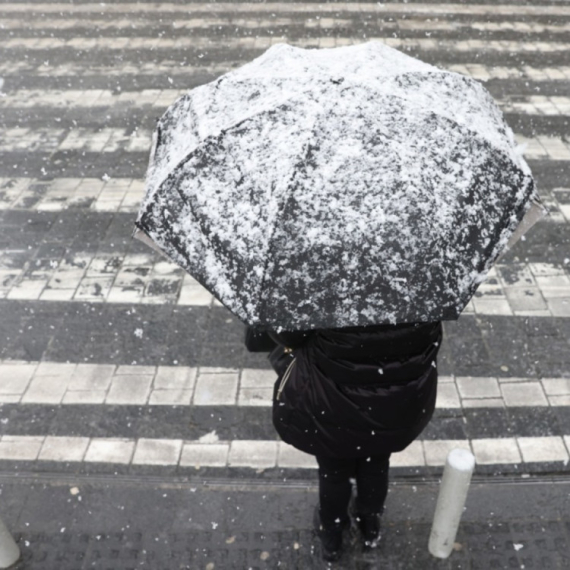
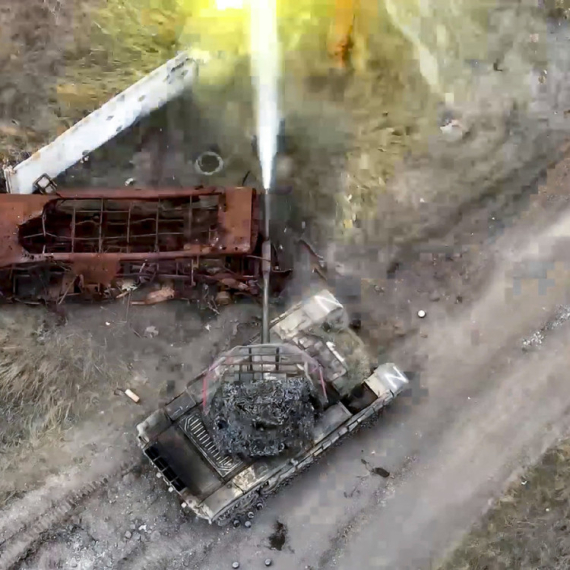


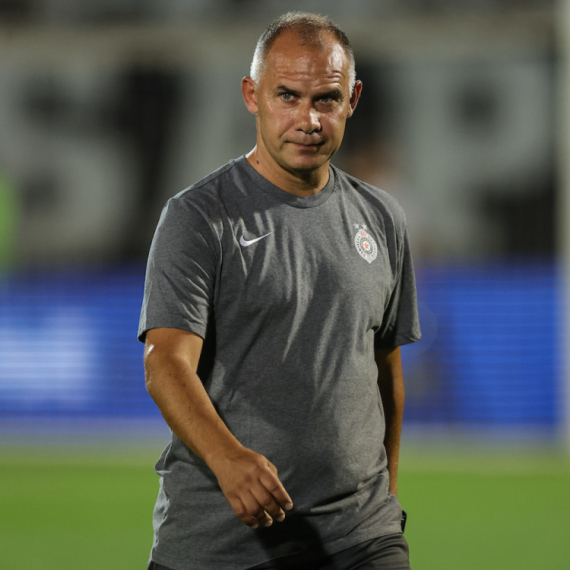
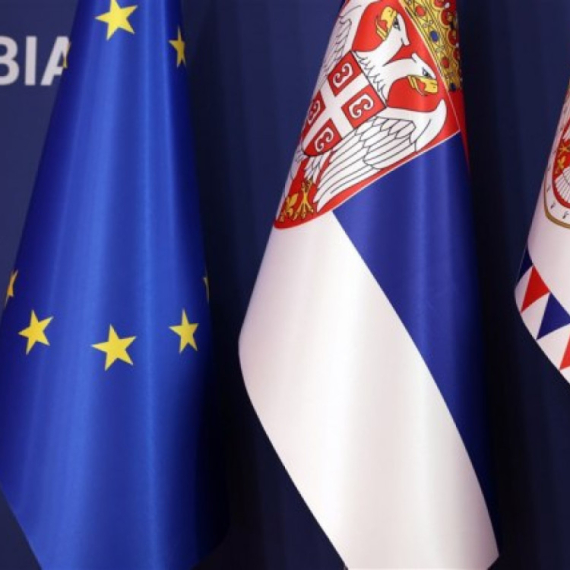
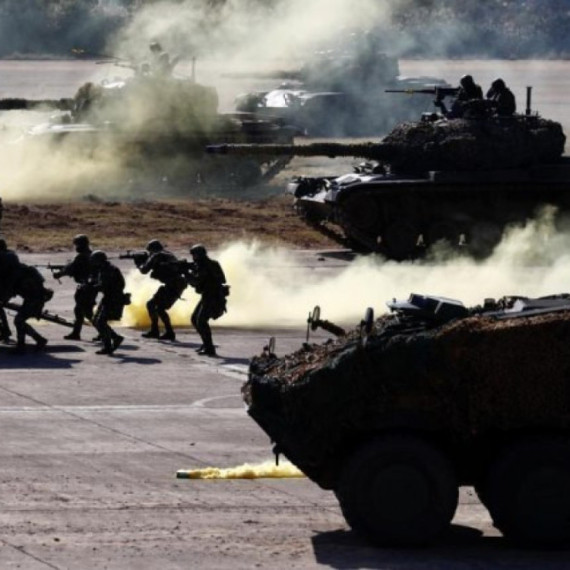
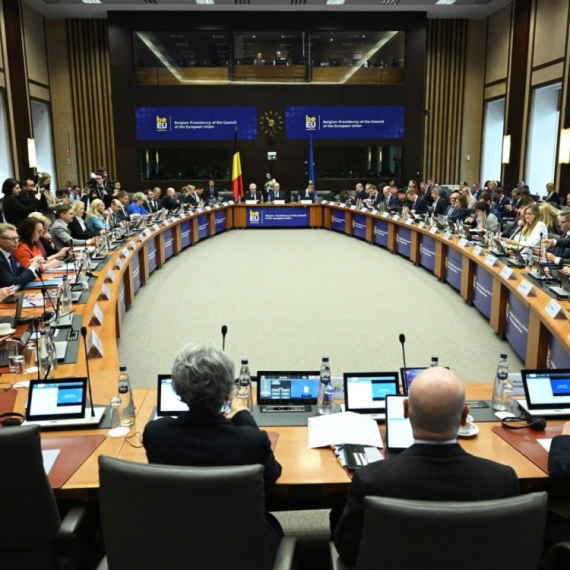
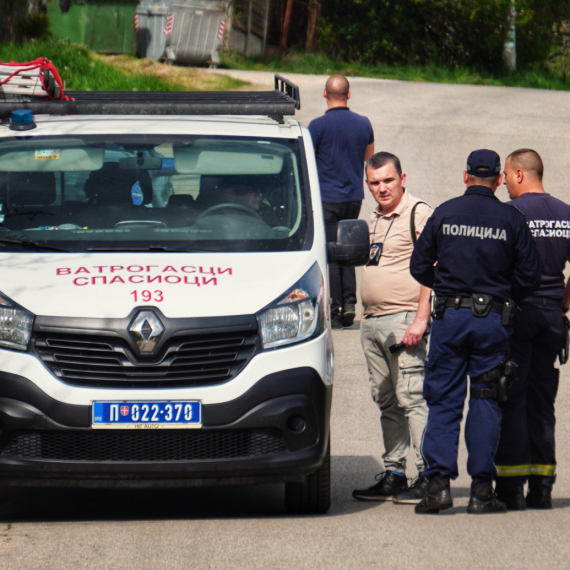
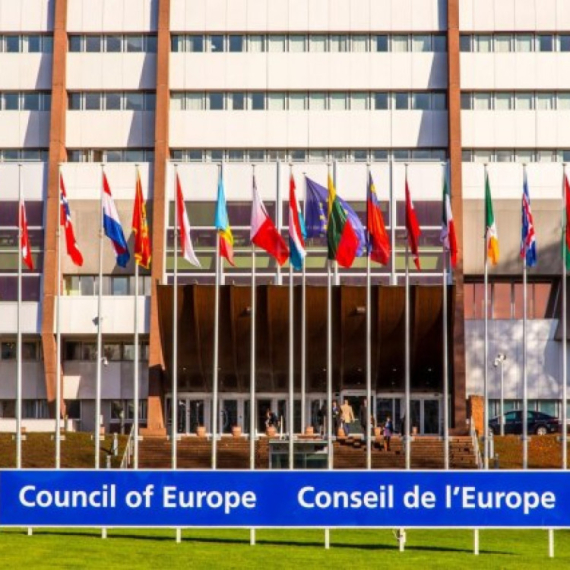








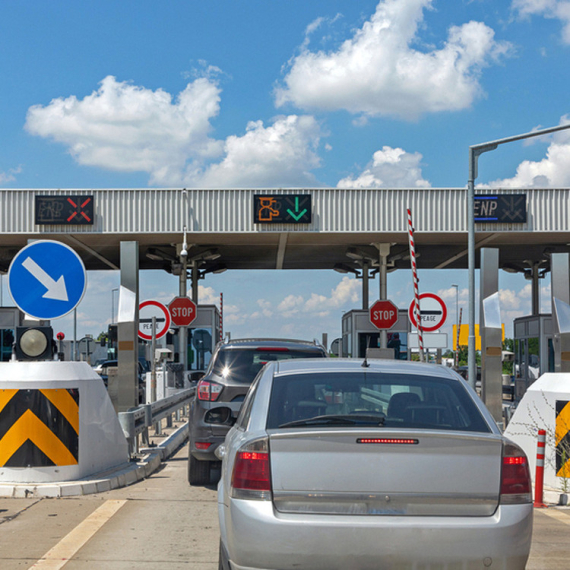







Komentari 29
Pogledaj komentare